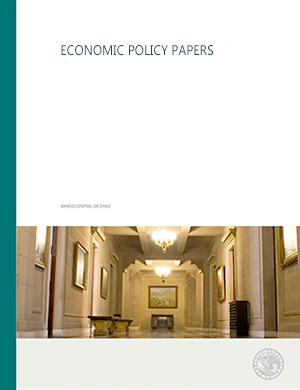Economic Policy Papers N° 73: Inflation and Labour Markets in the Wake of the Pandemic: The Case of Chile
Publications
Economic Policy Papers N° 73: Inflation and Labour Markets in the Wake of the Pandemic: The Case of Chile
Autor: Lissette Briones , Guillermo Carlomagno , Pablo García
Description
The COVID-19 crisis resulted in a negative supply shock on labour markets worldwide. This, along with the followup of fiscal support measures, caused repercussions that persist to this day on the behaviour of labour markets and inflation. This document revisits the case of Chile throughout the period and examines the consequences on wages, employment, and inflation. The Chilean case constitutes a special one in that, on top of fiscal support measures that were also adopted in other countries, Congress approved pension fund withdrawals equivalent to roughly 19% of GDP that, together with other fiscal measures in year 2020 and 2021, resulted in a liquidity injection into household´s balance sheets of close to 33% of GDP. As a consequence of these measures, along with restrictions to mobility and fear of contagion, internal demand and inflation surged, and the labour market tightened significantly. In recent quarters, as the shock to internal demand started to give in and economic activity slowed down, we argue that the labour market acted as a shock absorber, allowing for lower real wages and more resilient employment than expected. Apart from recent developments, we also review some structural features of the Chilean labour market and wage formation mechanisms and their possible future dynamics. Finally, the last section describes the use of labour market information in the monetary policy process.
Economic Policy Papers N° 73: Inflation and Labour Markets in the Wake of the Pandemic: The Case of Chile
Boxes and graphics

